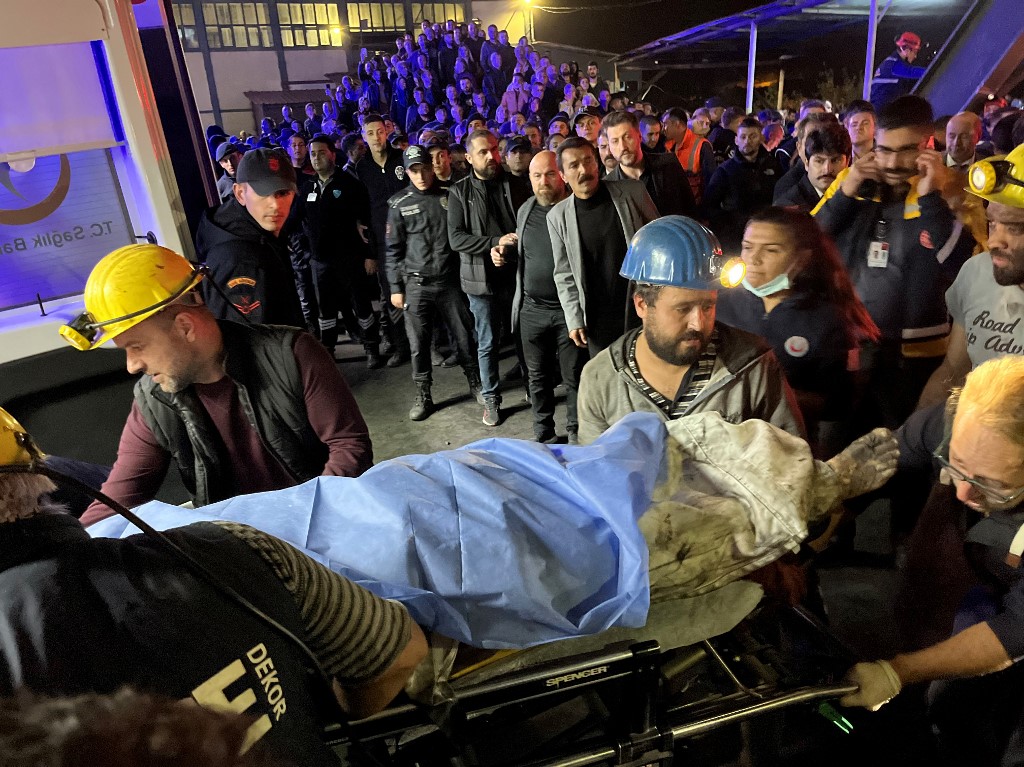Turkey has tragically lost at least 2,188 miners in work-related accidents since the Justice and Development Party (AKP) came to power in November 2002, which reveals the country’s failure to protect the lives of its workers, the Cumhuriyet daily reported, citing a report from the Health and Safety Labor Watch (İSİG).
The report, published on the occasion of International Miners Day, marked on December 4 to celebrate and recognize those who engage in this dangerous job, revealed the miners’ challenging and dangerous working conditions and the AKP government’s failure to prioritize the safety of workers and to attempt to prevent accidents.
The report mentions the deadly mining disasters that took place across the country in places such as Soma, Amasra, Ermenek and İliç during the AKP’s 22 years in power while bringing the effectiveness of the government’s policies for workplace safety under the spotlight.
Turkey’s worst mining disaster took place under AKP rule in May 2014 in the Soma district of western Manisa province, taking the lives of 301 miners. In addition to the miners who died, 162 others were injured in a fire inside the coal mine. The deaths were caused by carbon monoxide spread through the mine by the fire.
The trial of 28 public officials, including inspectors from two ministries, accused of responsibility for the disaster, began only in May — a decade after the tragedy.
In another tragedy in October 2014 a lignite mine operated by Has Şekerler Mining in Ermenek, Karaman, flooded, trapping 18 workers inside. After 38 days of search and rescue efforts, it was determined that all 18 workers had died.
In October 2022 a methane blast ripped through a mine in the small coal town of Amasra on Turkey’s Black Sea coast, operated by the state-owned Turkish Hard Coal Enterprises (TTK), claiming the lives of 43 miners and injuring nine.
Lawyer Derviş Emre Aydın, who spoke to Cumhuriyet about the trial of the defendants in the Amasra tragedy, complained about the slow progress and the shortcomings in the investigation and trial process.
He said the defendants’ faulty decisions regarding the sealing of the mine after the explosion hindered on-site inspections and that the inclusion of senior suspects as defendants in the main case file has been indefinitely delayed.
In the most recent tragedy, some 10 million cubic meters of soil contaminated with cyanide and sulfuric acid tumbled down the heap leach pad of the Çöpler gold mine in the İliç district of Erzincan on February 13, leaving nine miners trapped. The rescue efforts following the disaster were hindered by the threat of further landslides.
The bodies of the miners were retrieved gradually in the course of the following four months.
This disaster has shone a spotlight on the oversight and management of mining activities in the region and highlighted a series of ignored warnings and inspections.
A recent expert report on the disaster, which also included environmental impact assessment (ÇED) reports, found no public officials from the Ministry of Environment who approved or signed the ÇED report to be “at fault.”
Meanwhile, the ANKA news agency reported that coal miners in Soma who gathered to mark International Miners’ Day on Wednesday complained about issues such as frequent workplace accidents and the government’s energy policies in their messages.
“When we think of December 4th … we see it as a day of mourning due to the energy policies adopted by the government in Turkey,” the miners’ statement said.
Work accidents are common in Turkey, where economic development can ride roughshod over safety concerns, particularly in the construction and mining industries.
